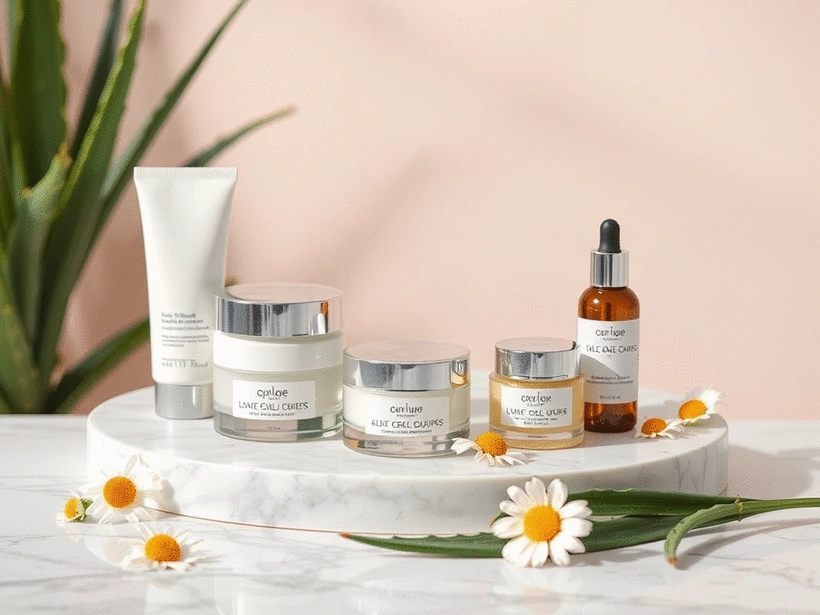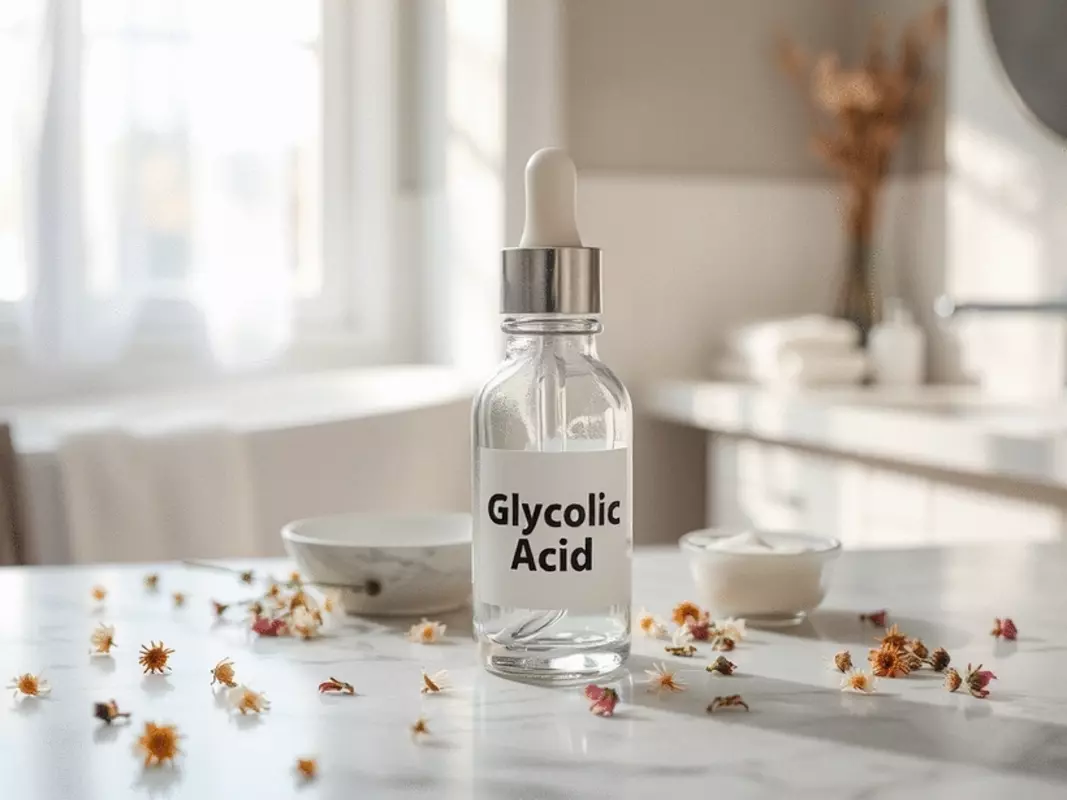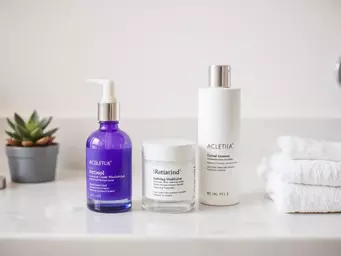Moisturizers for Dry Acne Skin

Have you ever felt overwhelmed by the conflicting needs of dry and acne-prone skin? You're not alone. Understanding how to balance hydration without worsening breakouts is key to achieving healthy skin. Let's explore some essential insights that can transform your skincare journey!
What You Will Learn
- Moisturizing is essential for dry acne-prone skin, as it helps prevent excess oil production and clogged pores.
- Choosing the right moisturizer involves looking for non-comedogenic products that hydrate without causing breakouts.
- Seasonal changes require adjustments to your moisturizer; thicker creams for winter and lighter gels for summer can help maintain hydration.
- Understanding your unique skin needs, including sensitivity and lifestyle, is crucial for selecting the right skincare products.
- Consulting with a dermatologist can provide personalized recommendations and address any underlying skin conditions effectively.
Bridging the Gap: The Dry Acne Skin Dilemma
Understanding the unique challenges of dry, acne-prone skin is the first step towards finding harmony in your skincare routine. This visual highlights key aspects of managing this condition.
Why Moisturizing is Crucial
- ✓ Maintains skin barrier function
- ✓ Reduces irritation
- ✓ Supports healing
Common Challenges
- × Choosing the right products
- × Managing sensitivity
- × Balancing treatments
Finding the Right Moisturizer
- ● Understand your skin type
- ● Look for non-comedogenic labels
- ● Choose soothing formulations
Seasonal Adjustments
- ⨀ Winter: thicker creams
- ⨀ Summer: lightweight gels
- ⨀ Spring/Fall: balanced moisturizers
Evaluating Products
- ★ Examine ingredient lists
- ★ Consider your lifestyle
- ★ Pay attention to skin feel
Professional Advice
- ⓘ Personalized recommendations
- ⓘ Discuss underlying conditions
- ⓘ Tailored treatment advice
Understanding Dry Acne Skin: The Hydration Dilemma
Have you ever felt like your skin is stuck in a never-ending battle between dryness and acne? You're not alone! At Dry Acne Solutions, we see many individuals grappling with this frustrating condition. Understanding the unique challenges of dry acne-prone skin is the first step towards finding harmony in your skincare routine.
When it comes to managing dry acne, one key element stands out: hydration. Many people believe that moisturizing can worsen acne, but the reality is that dry skin can actually lead to increased breakouts. That's why it's crucial to find the right balance!
Why Moisturizing is Crucial for Dry Acne-Prone Skin
Moisturizing is essential for all skin types, but it's especially important for those dealing with dry, acne-prone skin. When your skin lacks moisture, it can go into overdrive, producing excess oil in an attempt to compensate. This excess oil can easily lead to clogged pores, which exacerbates acne problems.
- Hydration helps maintain skin barrier function: A healthy barrier keeps irritants out and locks moisture in. As discussed by the National Institutes of Health, maintaining a strong skin barrier is crucial for overall skin health and preventing issues like dryness and irritation.
- Reduces irritation: Well-hydrated skin is less likely to become inflamed or irritated, which is crucial for acne management.
- Supports healing: Moisturizers can aid in the recovery of acne lesions, helping to fade scars and improve overall skin texture.
Incorporating a suitable moisturizer into your routine can make a world of difference. It's all about finding the right product that hydrates without clogging your pores!
Common Challenges Faced by Individuals with Dry Acne Skin
Living with dry acne-prone skin can feel like navigating a minefield. Each day brings its own set of challenges. Here are some common hurdles I’ve encountered with my patients:
- Choosing the right products: Many people are unsure which moisturizers will hydrate effectively without aggravating acne.
- Managing sensitivity: Acne treatments can often increase dryness or irritation, creating a vicious cycle.
- Balancing treatments: Finding the right combination of acne-fighting ingredients while keeping the skin hydrated can be tricky. This balance is often highlighted in dermatological discussions, such as those found on JCADonline.com, which emphasize the importance of appropriate moisturizer selection when using acne medications.
At Dry Acne Solutions, we strive to equip you with the knowledge and tools to overcome these challenges. Remember, understanding your skin is the first step in managing it effectively!
Pro Tip
Did you know? When choosing a moisturizer for dry acne-prone skin, look for products that contain hyaluronic acid and ceramides. These ingredients not only hydrate your skin but also help repair the skin barrier, reducing the likelihood of breakouts while keeping your skin supple and smooth.
Summarizing Key Insights for Optimal Skin Care
When it comes to managing dry acne-prone skin, choosing the right moisturizer is essential. It’s not just about hydration; it’s about finding a product that supports your skin's unique needs while minimizing breakouts. A well-chosen moisturizer can balance moisture levels, soothe irritation, and protect your skin barrier, helping you achieve that healthy glow you desire!
Understanding the key ingredients—like humectants, barrier repair agents, and soothing elements—can make a significant difference in your skincare routine. By selecting moisturizers tailored to your specific needs, you can prevent the frustrating cycle of dryness and acne flare-ups.
Understanding the Importance of Choosing the Right Moisturizer
Not all moisturizers are created equal, especially for those dealing with dry, acne-prone skin. The right moisturizer should provide hydration without causing clogged pores or excess oil production. It’s crucial to look for products that contain beneficial ingredients like hyaluronic acid, ceramides, and niacinamide.
- Understand your skin type: Is it sensitive, oily, or combination?
- Look for non-comedogenic labels to avoid pore-clogging ingredients. For instance, Prevention.com often recommends specific non-comedogenic moisturizers that are suitable for acne-prone skin.
- Choose formulations with soothing properties to reduce irritation.
Remember, your choice of moisturizer should align with your skin goals and lifestyle. It’s all about enhancing your skin health without compromising its balance.
Adapting Your Moisturizer Routine to Seasonal Changes
Seasons can greatly affect our skin, and adjusting your moisturizer accordingly is key! In winter, your skin may require richer, creamier textures to combat the drying effects of cold weather. Meanwhile, summer might call for lighter, gel-based products to keep your skin hydrated without feeling heavy.
- Winter: Choose thicker creams with ingredients like shea butter.
- Summer: Opt for lightweight gels that contain aloe vera for hydration.
- Spring/Fall: A balanced moisturizer that works well in moderate climates.
Keeping an eye on your skin’s response to seasonal shifts can help you maintain optimal hydration and prevent issues related to dryness or acne.
Frequently Asked Questions (FAQs)
Here are some common questions about managing dry, acne-prone skin:
- Why is moisturizing important for acne-prone skin? Moisturizing is crucial because dry skin can overcompensate by producing more oil, leading to clogged pores and increased breakouts. It also helps maintain the skin barrier, reduces irritation, and supports healing.
- What kind of moisturizer should I look for if I have dry, acne-prone skin? Look for non-comedogenic, oil-free moisturizers that contain ingredients like hyaluronic acid, ceramides, and niacinamide. These will hydrate without clogging pores and help repair the skin barrier.
- Should I change my moisturizer with the seasons? Yes, adjusting your moisturizer seasonally is beneficial. Thicker creams are often better for dry winter months, while lighter, gel-based formulas are preferable in warmer summer weather.
- How do I know if a product is suitable for my sensitive, acne-prone skin? Examine ingredient lists for potential irritants or allergens. Prioritize products labeled "non-comedogenic" and "oil-free." Pay attention to how a product feels on your skin—it should feel hydrating, not heavy or sticky.
- When should I consult a dermatologist? If you're overwhelmed by product choices, struggling to manage your skin, or suspect an underlying condition, a dermatologist can provide personalized recommendations, discuss treatments like retinol or salicylic acid, and offer tailored advice.
Your Next Steps: Finding the Right Daily Moisturizer
As you embark on the journey to find your perfect daily moisturizer, there are several steps you can take to ensure success. Empowering yourself with the right knowledge will help you make informed decisions that benefit your skin!
Evaluating Products Based on Your Unique Skin Needs
Take a moment to assess your unique skin situation. Are you prone to breakouts? Do you experience tightness or flakiness? Knowing these details will guide your product evaluation.
- Examine ingredient lists for allergens or irritants.
- Consider your lifestyle—do you need a product that can withstand workouts?
- Pay attention to how a product feels on your skin—lightweight vs. rich textures.
Finding a moisturizer that addresses your specific concerns can enhance your skincare routine and bring you closer to achieving healthy skin.
Seeking Professional Advice: When to Consult a Dermatologist
If you're feeling overwhelmed or uncertain about which products to use, don’t hesitate to reach out to a dermatologist. Professionals like myself are here to help you navigate the complexities of skincare!
- Consult for personalized product recommendations.
- Discuss potential underlying conditions affecting your skin.
- Receive tailored advice for incorporating treatments like retinol or salicylic acid.
Your skin health is worth the investment in professional guidance. It can save you time, money, and frustration in the long run!
Identifying Non-Comedogenic and Oil-Free Formulations
As you explore moisturizer options, always look for products labeled as non-comedogenic. This ensures they are designed not to clog pores, making them ideal for acne-prone skin. Similarly, oil-free options can provide hydration without the added weight or shine.
- Check labels for “oil-free” or “won’t clog pores” claims.
- Consider looking for products with clear, concise ingredient lists.
- Read reviews or consult skincare communities for recommendations.
With the right research and mindfulness, you can discover moisturizers that enhance your skin's health and keep dryness and acne at bay!
Recap of Key Points
Here is a quick recap of the important points discussed in the article:
- Hydration is essential for managing dry acne-prone skin; it prevents excess oil production and clogged pores.
- Choosing the right moisturizer is crucial; look for non-comedogenic products that suit your skin type.
- Adjust your moisturizer based on seasonal changes to maintain optimal hydration.
- Understand your unique skin needs and evaluate products accordingly for the best results.
- Consult a dermatologist when needed for personalized product recommendations and treatment advice.








